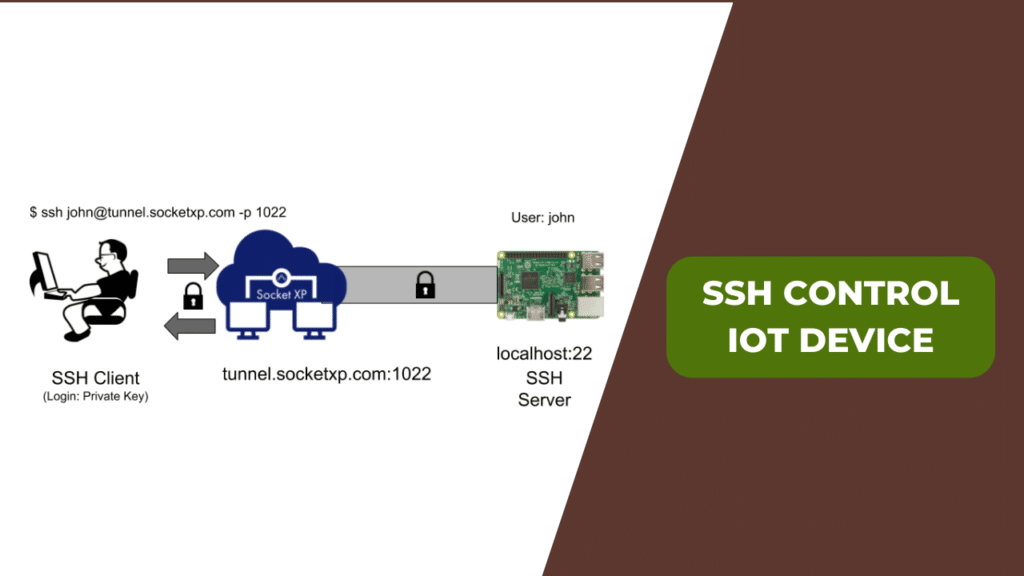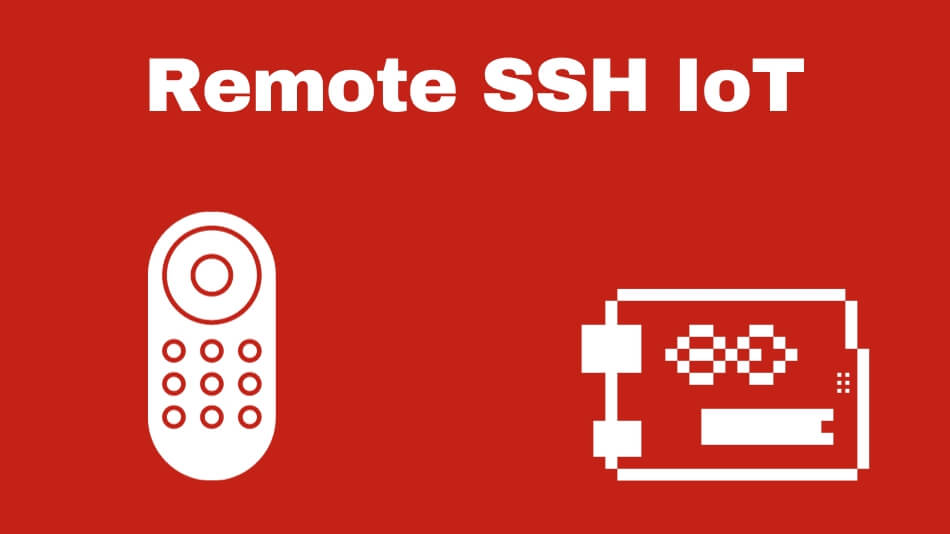Hey there, tech enthusiasts! If you're reading this, chances are you're on the lookout for the best SSH IoT device to elevate your smart home or business setup. In today’s interconnected world, IoT devices are not just gadgets—they're game-changers. And when it comes to securing and managing these devices remotely, SSH plays a crucial role. So, let's dive in and find out what makes an SSH IoT device stand out!
Now, before we get into the nitty-gritty, let me tell you something cool. The best SSH IoT device isn't just about specs—it's about reliability, security, and ease of use. Whether you're a tech-savvy pro or someone who's just dipping their toes into the IoT pool, you'll want to pay attention to what we’re about to reveal.
By the end of this article, you'll have all the info you need to make an informed decision. So, grab a cup of coffee, sit back, and let’s explore the world of SSH IoT devices together. Ready? Let's go!
Here’s what we’ll cover:
- What is an SSH IoT Device?
- Key Features to Look For
- Top SSH IoT Devices in the Market
- How to Choose the Right Device
- Security Considerations
- Performance and Reliability
- Cost and Value
- Real-World Use Cases
- Frequently Asked Questions
- Final Thoughts
What is an SSH IoT Device?
Alright, let's start with the basics. An SSH IoT device is basically a smart device that allows you to connect and manage it remotely using SSH (Secure Shell). Think of SSH as a secure tunnel that lets you control your IoT devices from anywhere in the world. It’s like having a remote control for your smart home or office, but way cooler and way more secure.
SSH IoT devices come in all shapes and sizes, from tiny sensors to powerful gateways. They're designed to handle everything from monitoring environmental conditions to controlling smart appliances. And the best part? They keep your data safe and sound, even when you're accessing them from a public Wi-Fi hotspot.
Why SSH Matters for IoT
Here’s the deal—IoT devices are awesome, but they can be vulnerable to hacking if not properly secured. That’s where SSH comes in. By encrypting your communications, SSH ensures that no one can snoop on your data or take control of your devices. It’s like having a digital bodyguard for your smart tech.
Key Features to Look For
Now that you know what an SSH IoT device is, let’s talk about the features you should look for when choosing one. Not all devices are created equal, so you’ll want to make sure you’re getting the right mix of functionality and security.
- Remote Access: The ability to control your device from anywhere is a must-have. Look for devices that support SSH out of the box.
- Security: Encryption, firewalls, and regular firmware updates are non-negotiable. Your device should be as secure as your bank account.
- Compatibility: Make sure the device works with your existing setup. Whether you’re using Linux, Windows, or macOS, compatibility is key.
- Scalability: If you plan to expand your IoT network, choose a device that can grow with you.
- User-Friendly Interface: A device that’s easy to set up and use will save you a ton of time and frustration.
What About Performance?
Performance is another big factor to consider. You don’t want a device that lags or crashes every time you try to connect. Look for devices with solid processing power and enough memory to handle your needs.
Top SSH IoT Devices in the Market
Alright, let’s talk about some of the best SSH IoT devices out there. These devices have been tested and trusted by tech experts and everyday users alike. Here’s a quick rundown:
1. Raspberry Pi
The Raspberry Pi is a fan favorite for good reason. It’s affordable, versatile, and packs a punch when it comes to processing power. Plus, it supports SSH right out of the box, making it a great choice for beginners and pros alike.
2. Arduino
Arduino boards are perfect for DIY enthusiasts. They’re easy to program and can be used for a wide range of projects, from home automation to robotics. While they may not have the processing power of a Raspberry Pi, they’re still a solid choice for many applications.
3. ESP8266
The ESP8266 is a Wi-Fi module that’s gaining popularity in the IoT world. It’s small, cheap, and supports SSH, making it a great option for lightweight applications. If you’re on a budget, this could be the device for you.
How to Choose the Right Device
Choosing the right SSH IoT device can be overwhelming, especially with so many options on the market. Here are a few tips to help you make the right decision:
- Identify your needs: What do you want to achieve with your IoT setup? This will help narrow down your options.
- Set a budget: Decide how much you’re willing to spend and stick to it. Remember, more expensive doesn’t always mean better.
- Read reviews: Check out what other users are saying about the devices you’re considering. Real-world feedback can be invaluable.
- Test before you buy: If possible, try out the device before making a purchase. This will give you a feel for how it works and whether it meets your needs.
Pro Tip:
Don’t underestimate the importance of support. A device with good documentation and a responsive community can save you a lot of headaches down the road.
Security Considerations
Security should always be at the top of your list when it comes to IoT devices. Here are a few things to keep in mind:
- Use strong passwords: Weak passwords are a hacker’s dream. Make sure you’re using strong, unique passwords for all your devices.
- Enable two-factor authentication: This adds an extra layer of security to your devices.
- Keep firmware up to date: Manufacturers regularly release updates to fix security vulnerabilities. Make sure you’re installing them as soon as they’re available.
- Monitor your network: Keep an eye on your network for any suspicious activity. Early detection can prevent a lot of headaches.
Common Security Threats
IoT devices are vulnerable to a range of threats, including DDoS attacks, malware, and unauthorized access. By taking the right precautions, you can minimize the risk of these threats and keep your devices safe.
Performance and Reliability
Performance and reliability go hand in hand. A device that performs well but breaks down every few months isn’t worth your time or money. Here’s how to ensure you’re getting a reliable device:
- Check the build quality: A well-built device is more likely to last longer.
- Look for warranty and support: A good warranty and responsive customer support can be a lifesaver if something goes wrong.
- Read user reviews: Pay attention to what users are saying about the device’s performance over time.
Real-World Performance
Performance can vary depending on how you use your device. Some devices may perform well in one application but struggle in another. That’s why it’s important to test the device in real-world conditions before making a final decision.
Cost and Value
Cost is always a factor when it comes to buying tech. But remember, the cheapest option isn’t always the best. Here’s how to determine the value of an SSH IoT device:
- Compare features: Make sure you’re comparing apples to apples when it comes to features.
- Consider long-term costs: Think about things like energy consumption and maintenance costs.
- Factor in your time: A device that’s easy to set up and use can save you a lot of time and frustration.
Is It Worth the Investment?
Ultimately, the value of an SSH IoT device depends on how it fits into your overall setup. If it meets your needs and saves you time and money in the long run, it’s probably worth the investment.
Real-World Use Cases
Let’s talk about some real-world use cases for SSH IoT devices. These examples will give you a better idea of how these devices can be used in different scenarios:
- Home Automation: Control your lights, thermostat, and security system from anywhere.
- Environmental Monitoring: Monitor temperature, humidity, and air quality in your home or office.
- Industrial Applications: Use IoT devices to monitor machinery and optimize production processes.
- Healthcare: Remote patient monitoring and telemedicine applications.
Success Stories
There are countless success stories of businesses and individuals using SSH IoT devices to improve their lives and operations. From smart cities to smart homes, the possibilities are endless.
Frequently Asked Questions
Here are some common questions people have about SSH IoT devices:
- What is SSH? SSH stands for Secure Shell. It’s a protocol that allows you to securely connect to and manage remote devices.
- Why is SSH important for IoT? SSH provides a secure way to manage IoT devices remotely, protecting your data and devices from unauthorized access.
- How do I set up SSH on my IoT device? Most devices come with instructions for setting up SSH. Make sure to follow them carefully to ensure a secure connection.
Final Thoughts
And there you have it—a comprehensive guide to the best SSH IoT devices. Whether you’re looking to automate your home, monitor your business, or explore the world of IoT, there’s a device out there that’s perfect for you.
Remember, when choosing an SSH IoT device, focus on security, performance, and value. And don’t forget to do your research and read reviews before making a purchase.
So, what are you waiting for? Get out there and find the best SSH IoT device for your needs. And don’t forget to share your experiences in the comments below. We’d love to hear from you!


